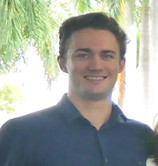University of Miami
Caicedo Group

ALEJANDRO CAICEDO

ANNA LANG
Dr. Caicedo is a professor of medicine at the University of Miami Miller School of Medicine. Originally trained as a sensory neurobiologist, Dr. Caicedo started working in the field of pancreatic islet biology in 2005. His work focuses on fundamental aspects of the anatomy and physiology of the human islet. His primary goal is to provide detailed knowledge of islet biology that is relevant to understand the control of glucose homeostasis and its derangement in diabetes.
Dr. Anna Lang is an assistant scientist who studies mitochondrial function in pancreatic beta cells. She is also investigating why the glucagon secreting alpha cell does not respond appropriately to changes in glucose levels in people with type 1 diabetes.

MADINA
MAKHMUTOVA

ELIZABETH
PEREIRA
Dr. Makhmutova is a postdoctoral associate whose studies are aimed at determining how the pancreatic islet communicates with the brain and the gut. Towards this end, she is recording from neurons in the nodose ganglion that connect the pancreas to the brain. She expects her work to elucidate the type of information the islet is sending to the brain under healthy and diabetic conditions.
Ms. Elizabeth Pereira is a research associate with expertise in histology, immunohistochemistry, confocal microscopy, genotyping and animal husbandry. She provides excellent support for all the projects.

ALEJANDRO
TAMAYO

NOAH J. LEVI
Dr. Alejandro Tamayo is an assistant scientist with expertise in metabolic studies (e.g. glucose tolerance tests), islet transplantation, in vitro studies to measure hormone secretion from the islet, genotyping and animal husbandry. Among his multiple contributions, he recently defined the neuroeffector mechanisms of parasympathetic control of pancreatic secretory function. He currently is the head of the animal core at the Diabetes Research Institute that provides excellent support for all our projects.
Mr. Noah J. Levi is an MD/PhD student at the University of Miami Miller School of Medicine. In his research project, he is investigating how local pancreatic neurons affect the pancreatic function. His work will contribute to our understanding of how the autonomic nervous system modulates insulin and glucagon secretion. He received an F30 that provides financial support for his studies.

NICHOLAS BOROWSKY

JESSICA DORNING
Mr. Nicholas Borowsky is an MD/PhD student at the University of Miami Miller School of Medicine. In his research project, he is investigating the effects of cholinergic innervation on resident macrophage function. His studies may have implications for our understanding on how the autoimmune attack is initiated in type 1 diabetes. In the long term, we expect this pathways to be harnessed to delay or prevent the destruction of beta cells.
Ms. Jessica Dorning is a PhD student in the Neuroscience Program at the University of Miami Miller School of Medicine. In her research project, she is investigating the neuronal entry point of sensory vagal information originating from the pancreatic islet. She is identifying neurons in the nuclear of the solitary tract that became activated in response to beta cell stimulation. We expect her results to elucidate the neuronal elements that contribute to a vago-vagal loop controlling insulin secretion.

LETICIA BARSSOTTI
Ms. Leticia Barssotti is a PhD student at the University of Campinas in Brazil who is conducting part of her doctoral thesis in our laboratory. Her work focuses on neural cholinergic control of vascular function in the pancreas. To this end she is stimulating local pancreatic neurons and recording vascular function in vivo and ex vivo using pancreatic slices. Her other mentors are Dr. Ana Paula Davel (University of Campinas) and Dr. Joana Almaça (University of Miami).